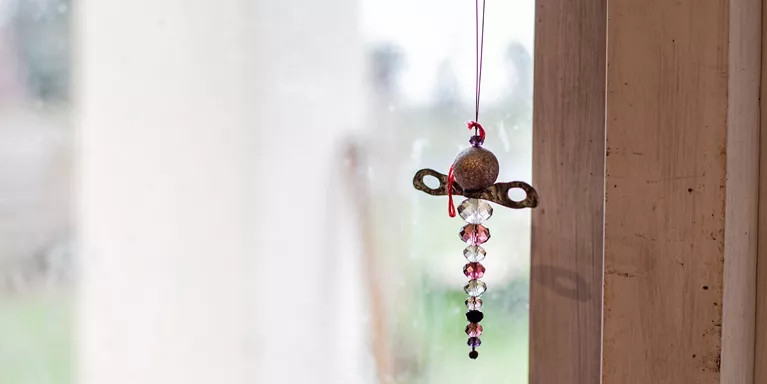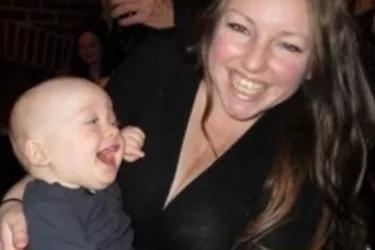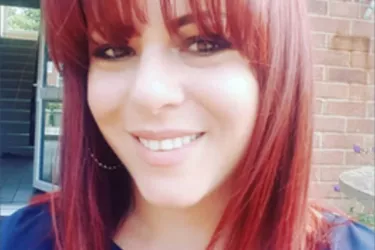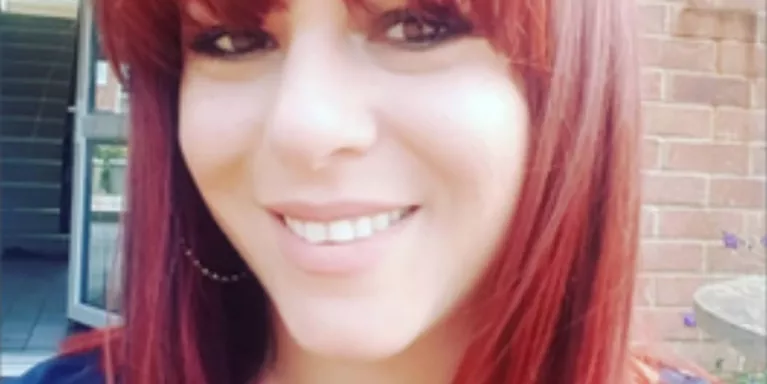Mind podcast - Living with psychosis
Reka describes her three very different episodes of psychosis and why she'd rather have another one than take
Subscribe to our podcast on iTunes or Audioboom.
For more info on some of the issues covered in this podcast, click below:
- Information on psychosis, bipolar and hypomania
- Antipsychotics
- Being sectioned
- Community treatment orders (CTOs)
Matt: Welcome to this Mindcast, Exploring Psychosis, my name’s Matt Wilkinson, and with me today is Reka Krieg. Rika is a mother of one, from South London. What does the term psychosis mean to you?
Reka: OK to me personally the term psychosis means losing touch with reality. It means seeing, feeling, believing, hearing things that are not in tune with what I call in speech marks ‘normal reality’ that ‘normal people’ in speech marks, can hear, see or feel.
Matt: How many episodes have you experienced?
Reka: I’ve experienced three episodes of psychosis.
Matt: What were the circumstances surrounding your first one?
Reka: The first episode lasted about, from beginning to end, 3 months. I’ve got bipolar type 1, it started, it left, I was normal again, I went up again, I came down again, I went up again, it was like a wave. It started with lack of sleep, going into hypomania, feeling excited, feeling confident, feeling glad about myself, thinking I could do anything. Then going on to full-blown mania, thinking I could change the world, I’m special, spiritual knowledge is coming to me. Having all these congruous beliefs, then completely tipping into what ‘normal’ people, in speech marks, would call crazy.
Matt: And how would you refer to it?
Reka: I like to call it alternative reality. That might sound a bit crazy, but to me it is an alternative reality, for me it’s true. I believe it, at that moment.
Matt: So, describe exactly what it was that was happening, this first time, when you went into an alternative reality, what was alternative about it, what was happening to you?
Reka: OK, my psychosis has got lots of different features, I experience so many different aspects to it, one of them was that I thought I could write a book, which wasn’t really a book, but just me writing lots of silly things, and believing I could hear the divine, so I actually felt the divine was speaking through me, and I was giving messages to the world about the divine love, and how everything was going to be good again. And I believed at that moment that I could change the world, and I had perceptional hallucinations as well, I thought that certain letters of my writing kind of came towards me, I could see them flying towards me, and I thought, this is a special message to ensure I give sufficient emphasis to this particular subject.
Matt: You were having a vision, at that moment. So you were looking at a screen, and you could actually see the letters flying towards you, three-dimensionally flying towards you, like you would see at a cinema, through the glasses?
Yes, through the glasses, absolutely.
Matt: Was there a point when you thought, this isn’t right, I can’t possibly be seeing this, or did it seem totally normal to you?
Reka: Throughout my first psychosis I did have an element of insight. I knew I was high, I knew that what I was going through was psychotic, was what could be termed ‘crazy’, but I was enjoying it so much, and it felt real, so I made a conscious decision to believe in it. There was, I had enough insight so there was a part of me that was actually saying ‘hold on a minute, this might not be right,’ but I ignored that part, and just went for the joy of it. And there were elements in that psychosis when I did genuinely, lose touch with reality. I genuinely believed things to be true that I can now see, weren’t true, but for a lot of the time I did have a little bit of insight. But I decided to ignore the insight and carry on with what I believed was right and felt good.
Matt: So you said the first incident of psychosis lasted three months?
Reka: Correct
Matt: So this incident of the words you were typing coming out at you, was that something that lasted for three months, or was that just one occasion?
Reka: That was a one-off incident but in that three months, I had many different experiences of psychosis. Also losing touch with reality. I saw a picture of myself on Facebook, and out of that, I suddenly saw a Buddha coming out of it, instead of me there was a Buddha, so that was one experience of psychosis I had. Another one was that I was really frightened of people being able to read my mind, and I had my own theories about it. I believed that I tapped into a ‘collective consciousness’ and because you were tapping into it, in this heightened sense of awareness, other people can access the information too. And I had these paranoid feelings, they were scary. There were other incidents, when I thought I was God, which is a bit embarrassing, but it felt beautiful at the time, I felt beautiful, I felt at peace, I felt I could change and heal everyone.
Matt: Were you having a usual life-style, in that three-month period, as well as having these delusions, or did the delusions take over, and that was the only thing, that dominated your life?
Reka: I had no usual life-style at all the delusions completely took over. I didn’t sleep, I felt I didn’t need sleep. I didn’t want to sleep. I was enjoying writing, being on the internet, talking, talking and especially writing, I was enjoying writing. I was just writing like crazy. I was on Youtube looking at videos and I thought there were certain messages to myself, everything had meaning. I was on Facebook and I was connecting to other people, who believed my delusions, who were feeding into my delusions.
Matt: At what time did all this come to a head, at what time did it change? Did you think ‘I have to get help with this’ or was it a friend, or family member, who helped you at this point?
Reka: I felt that I was going high before the psychosis happened. I enjoyed myself, I went with the feeling, and within a week, it went out of control, I was really manic, and friends and family were really concerned.
I was living in Germany at the time, and one afternoon I sent off this crazy writing to everyone on my e-mail list, so people became aware that I was unwell. So that evening I heard a knock at the door, I opened the door. And my best friend, my best friends’ boyfriend, and my mothers’ friend were standing there in front of the door and they said ‘You have to come with us now’ so I had to come with them, I had no choice.
I went with them, and the next day they admitted me into a psychiatric hospital. And that itself was petrifying because I thought, I had the delusion that the psychiatric services were after me, that they wanted to lock me up, because I had access to knowledge that they didn’t want to come out, so they were taking me in, and they’d keep me in for ever. It was a conspiracy, I was petrified, I was screaming, I was crying.
The next day, this was in Germany, I discharged myself. And they let me go, and I immediately went out, and I went back to my Mum’s friend, and because I discharged myself, I thought OK , there’s not much they can do now, and they let me get on with it.
But somehow really quickly I went up again. I went really high, into psychotic beliefs, I think I was a little bit irritable as well, and my family was very concerned, and they called the Home Treatment Team, and they came to assess me at home. And were saying I had to come into hospital.
So I went into hospital with them, and at that moment I thought, I was no danger to myself, I was no danger to anyone else, I was 100 percent normal, I don’t think I was being psychotic. And the consultant came round, with a social worker, and he asked me questions like ‘Do you think you are an angel?’ and I said ‘Yes I believe I am an angel and so are you, we are all angels.’ And these are my normal beliefs. And because I made comments like this they thought I needed to be sectioned so they sectioned me. And I was just, like, OK, I didn’t think I needed to be sectioned, I thought I was fully there, maybe a little bit hypomanic, but I didn’t feel I was psychotic or needed sectioning.
Matt: You talked about your delusions and your visions being spiritually based, and you said about seeing a Buddha in your Facebook photo. Are you a religious person?
Reka: I’m very spiritual, yes.
Matt: Do you think that’s why you saw those visions. Because of your background in that?
Reka: Well actually I wasn’t spiritual before my psychosis, my psychosis made me spiritual. I wasn’t spiritual before, I did believe in psychics, but I didn’t grow up with any religion, I was completely anti-religion, completely. I knew I believed in something, I believed in love, that everyone should treat their neighbour right, everyone should be a good human being, being kind and generous and loving, that was as far as my religious belief went, I didn’t believe in a God.
But having this experience definitely made me very very spiritual. So I’m actually grateful for my psychosis. For me, my first psychosis was a spiritual emergency. To me it wasn’t necessarily, well of course from the psychiatric point of view it was a psychosis, but for me it was a spiritual emergency.
Matt: A spiritual awakening?
Reka: Yes, a spiritual awakening. I’m objective enough to believe that it was a psychosis, but subjectively I believe it was a spiritual awakening.
Matt: OK, so after the three months, were you at home, were you at the hospital?
Reka: After the three months, I was in hospital, my beliefs were definitely back to normal, but my beliefs are anyway quite crazy to an outsider. But they dischargedme, and what always happens to me I find, is they keep me in hospital for too long. If I’m happy and psychotic I feel good about myself. But when they start detaining you, I feel they are trying to destroy my beliefs, so when I come out, I feel very low, so I went into a very low period, and it took me again, a month, two months to rebuild my life.
And what I and many other people who have gone through psychosis or mania have to deal with is the embarrassment and shame they have caused to themselves, and other people knowing about it. So the shame and embarrassment are also really humiliating, very intense.
Matt: So how did that episode compare to subsequent episodes?
Reka: OK, the subsequent episodes weren’t as pleasant any more.
The second one again started off with intense engagement in spiritual activities, loads of meditation, loads of chanting, and the second psychosis, when I completely lost insight, what I can remember, I was at my Mums.
And I quite literally felt my brain being shaken, it was as if my brain was upside-down in my head. I fell on the floor, and was holding on to the staircase, and I was petrified. I didn’t know whether I had died, whether I was still alive, I had a physical sensation in my brain, as though I went into a different state of consciousness. And loads of bizarre things happened, I can’t remember all of them, but I know that I believed I was dying.
And what I can remember, is that I thought I would never see my daughter again, and I was screaming, screaming her name, calling her, genuinely believing that I would never see her, and that was quite painful, that was distressing.
And then I went out onto the road with bare feet, and I thought I was running through hell, and my mothers’ friend was there, and she was trying to catch me. Trying to come after me, and I thought she was a spirit, an evil spirit trying to keep me in this dimension, so I thought when she caught me and held me, she was trying to kill me or keep me there
Matt: How does it feel, sitting her now, reflecting on those moments. Do they feel real, do they feel like a dream?
Reka: Well, it’s really difficult to explain. It feels like watching someone else, perceiving someone else. Yes it’s devastating, just knowing your mind can play such tricks on you, and can do these horrible things to you, and you think, Oh my God, how can I ever rely on myself again, if my mind did this once, how do know that next time it won’t do something even more horrendous?
Matt: When you’re going through a moment like that, is there any bit of you that can remember previous psychotic experiences, can that provide any reasoning of what you’re going through, or is all that out of the window?
Reka: No, it was a very psychotic breakdown I had that second time. I was so psychotic, there was no insight. I was so out of it, there was no possibility of reasoning from the past, about anything rational.
Matt: Are there certain triggers for these psychotic episodes for you?
Reka: I don’t think there are triggers, but there are early warning signs. All the early warning signs are, feeling really happy, feeling really good, exercising, feeling confident, an over-active interest in spirituality, lack of sleep. Seeing signs everywhere, feeling in tune with the universe, these are the early warning signs, but I can’t think of triggers, as such.
Matt: What treatments have you had for the episodes you have undergone?
Reka: Well unfortunately, with psychosis, the only treatment they offer at that moment, in the acute phase, is antipsychotics. They don’t really offer much more than that.
Matt: Are they injections, are they tablets?
Reka: In hospital they’re usually tablets.
Matt: What does it feel like when you’re on the medication? Are there any side-effects?
Reka: When I was in hospital the first time, I was spitting many of them out, anyway, I wasn’t taking them. And as soon as I was discharged from the hospital I stopped taking them so I didn’t have any side-effects. But as soon as I came out of the psychosis, I was a changed person, I wasn’t myself any more. I was depressed, I was fraught, I was zombified, and I had to keep taking the medication.
They put me on a CTO. A Community Treatment Order. This is legislation that psychiatrists can impose on you if you have been sectioned. They can make you take the medication, they last six months, and they can review and extend them.
I was on a CTO for a year, and I had to take antipsychotics. They gave me injections every two weeks. And it was a most horrendous period of my life, I was unrecognisable from a few months ago. I was a size 16, so I was three stones heavier than I am now. I didn’t take any care of myself, I didn’t wear nice clothes. I didn’t wear make-up, my hair was in a mess. I didn’t enjoy communication, I didn’t enjoy talking to anyone. I couldn’t relate to anyone. I now go clubbing once a week, back then I couldn’t even dance, if I would go out, all I could do was move stiffly. Every bit of exercise was too much, walking two minutes down the road was too much for me, it was a most horrendous horrendous year of my life.
Matt: How long ago was this?
Reka: I went onto the CTO in March 2009 and came off it in April 2010
Matt: Do you think it was necessary?
Reka: OK, I’m trying to look at it objectively. I can see that from a psychiatrists point of view, that yes, it was necessary because I was a revolving door patient, in and out of hospital, I was what they like to call non-compliant, which I don’t agree with, because I was always very open, I wouldn’t do anything secretively. I openly said I was going to stop taking the medication.
Even when I was in hospital, I admitted I hadn’t taken my medication. So I can see why they thought it was necessary. But by the time I had my third episode of psychosis, I saw how unwell I was, because this third episode was really extreme and I came to a point where I thought actually, maybe I need to take medication, and I would have been very happy to have taken medication on my own behalf. So I think it was a bit unnecessary, I don’t agree with their decision, but I can see where they were coming from.
But what does make me very upset and angry, everyone was really happy that I was apparently doing so well, yes, I was out of hospital I was quiet I wasn’t manic, I wasn’t psychotic any more.
OK I was out of hospital, I might have saved them money, but what about myself, my life, my family? My life was destroyed. It was in tatters, I had no hope, my quality of life was disabled, I couldn’t do anything. They did try to help me, but they couldn’t pinpoint that it was my medication, and adjusted my medication accordingly. That makes me very angry, not the CTO itself, but the injections they put inside myself, and the horrendous effect it had on me, and that no-one was able to say, this is not her, this is not the way the patient should be, that makes me very angry.
Matt: Therefore, are you effectively saying that you’d prefer not to be on any medication and possibly have another psychotic episode? Would that improve your quality of life in that sense?
Reka: Since I’ve come off the injections I have been taking medication. I’m taking a mood stabiliser. I’m doing it willingly, happily, but you’re right, if I had the choice of taking antipsychotics or having a psychotic episode, I’d rather have a psychotic episode than take drugs which zombify me, any day.
Matt: Even if the psychotic episode is unpleasant, like your second and third ones?
Reka: You see when I was going through the psychosis, I can’t really remember very much, I can’t really relate direct suffering or pain to it, you know psychoses can be very exciting. So yes, I would choose a psychosis over medication that would zombify me.
Mind you, if I was going through a psychosis where I was thinking the devil was after me, where horrible things were crawling all over me, and I was having blood coming out of my body, which are really scary, I probably would choose the medication. I’m not too sure.
Matt: And how do you feel now?
Reka: I feel brilliant, my life is amazing, I have a wonderful quality of life. As soon as I came off those horrendous injections, slowly my life was improving, bit by bit, month by month, and I would say I’m back to my normal self. I’m happy, I’m excited, I have friends, I go to parties. I have holidays, I have I really nice family life. Yes life is very good. Obviously I have my good days and my not so good days, but the majority of the time I’m good.
Matt: Is it possible that the reason you feel better now is that the CTO worked?
Reka: Definitely not, the CTO did not work. It kept me quiet, it kept me zombified. It kept me out of hospital, true, but that’s all it did. It didn’t do any good to me whatsoever.
Matt: What would be your ideal treatment?
Reka: Well, I think the treatment I receive at the moment is quite ideal. I happily take my medication every morning, it works very well for me. But it’s not an antipsychotic, it’s a mood stabiliser. And I like to believe I’m a better self-manager now.
Because in the past, I kind of enjoyed the excitement of psychosis, and would push my mind in that direction. You don’t know how devastating it is, especially the recovery period afterwards, and the risk of taking antipsychotics again, there’s no way I would want to be that unwell again. So what I do is, I self-manage. I see myself going up, high and happy, and if I feel I am going up too much, I do call my Care Coordinator, she makes an appointment with my psychiatrist, and he prescribes me some antipsychotics P.R.N.
Matt: P.R.N.?
Reka: I don’t know what it stands for, but it means I can take the medication as and when needed.
Matt: Right
Reka: So when I feel I need the medication I take it myself and I self-manage like that.
Matt: Are you worried about experiencing psychosis again?
Reka: No I’m not worried about it.
Matt: Do you think a fourth episode is inevitable?
Reka: I believe I can stay alive without another psychosis. I believe I can manage it, I believe I know the early warning signs. The only risk I can see is that the early warning signs are so much joy and so much fun, that I decide not to do anything about it. But having had such horrendous experiences in the past, I know at the right time I would put my foot down, and say hands up, I need help, please help me not to go that far into it again.
Matt: Does it seem almost that what’s happening is, you’re getting so much positive feeling at the start, that that’s balanced out by the negative afterwards. You’d ideally like to have the positive without the negative but going through the positive you’re feeling, this is going to end in an unpleasant feeling, a negative, I need to deal with it now.
Reka: Yes, there have been instances when I’ve felt, this is going really crazy, and what I do is, I call my family members, there’s one particular family member I really trust, and what I do is, I call him, and say I’m having such a good time, but if I’m going out of control, and I don’t call for help, will you call for help for me?
Matt: You’ve touched on it there, what do you want from your family and friends when you may be about to go into a period of psychosis? How can they help you?
Reka: They are aware of my early warning signs, and I want them to look out for me, but I don’t even have to tell them to look out for me, they will automatically get really worried, really concerned and they will call my Care Coordinator, and they will make, not arrangements, but they will communicate on my behalf. So they will look out for me, and step in, and say, you need to see someone, you need to talk to someone, you need to take your medication now, you need to sleep.
Matt: What effect do you think your psychosis has on them?
Reka: Oh really horrendous, I think. I don’t think I can empathise enough with them. Because for me, when I talk about psychosis, for me it’s quite fun and exciting, and I don’t realise the effect it has on them. It’s had a huge impact, the worry, the distress, the inconvenience, they had to come and visit me every day for three months. Maybe even the embarrassment, the shame, the fear, the worry, to think I may never get better again. And luckily I can’t remember much about the third episode of psychosis, but it was pretty intense. And for anyone who loves you to see you in that state, it must be really traumatic.
Matt: If someone listening just now has just had the experience of a psychotic episode themselves, what would you say to them, to reassure them about the future, for example.
Reka: OK, what I would like to tell them is, that a psychosis has a lot of stigma, even being diagnosed as a mental health problem, huge stigma, it might feel like a bereavement, it might feel very horrendous, you’re probably really scared, you think your life is over, you can’t ever achieve anything.
But I would say that there are so many people who have gone through mental health issues, even psychosis, who have lived a very happy and successful life, to understand there always is hope and you can always get better, I really am a big believer that there really is hope for everyone, regardless of where we have come from, what we have gone through.
My advice would also be to find out as much as you can about your condition, so you can self-manage. Instead of looking at cases of people who have not got better, look at recovery stories of successful people who have recovered, and the experience may include stories of people who were so disabled they couldn’t leave home for months, look at recovery stories, and try to become your own best psychiatrist. Because I believe only we can help ourselves, and we can help psychiatrists and mental health services to help us. We are the first people to help ourselves.
Matt: You’ve proved you can deal with your psychosis and move on, haven’t you, it’s now part of what you do as a job.
Reka: I’m working for a mental health trust, there’s a project called Care Creating Health. I’m a self-management tutor for people with depression, we also have the first recovery college in the country
And I’m a sessional peer trainer. We facilitate courses on mental health issues, assertiveness, introduction to recovery, mindfulness. So I’m doing that. It shows you can move beyond mental illness and make something of yourself.
Matt: Thank you Reka for joining us.
Reka: Thank you for having me Matt.

Information and support
When you’re living with a mental health problem, or supporting someone who is, having access to the right information - about a condition, treatment options, or practical issues - is vital. Visit our information pages to find out more.
Share your story with others
Blogs and stories can show that people with mental health problems are cared about, understood and listened to. We can use it to challenge the status quo and change attitudes.

















